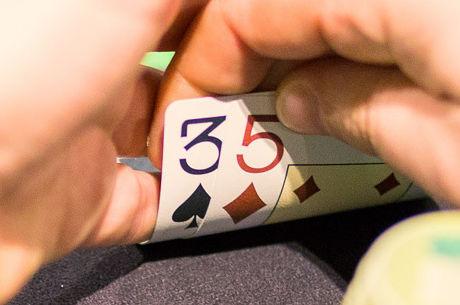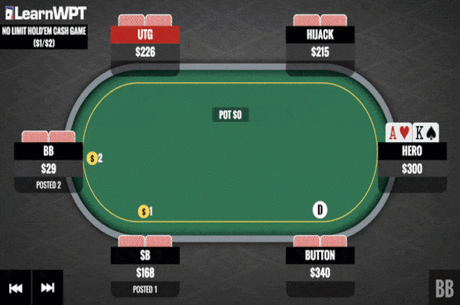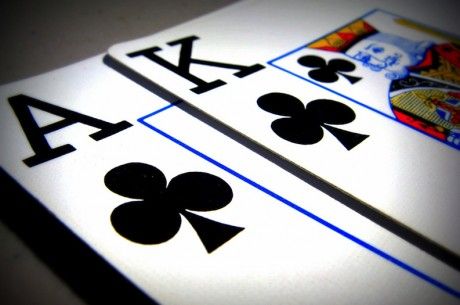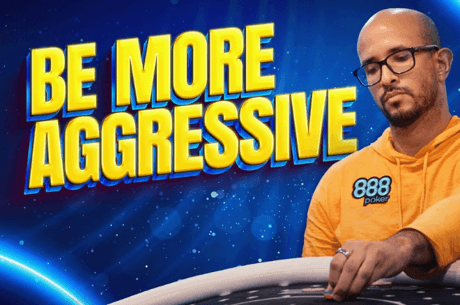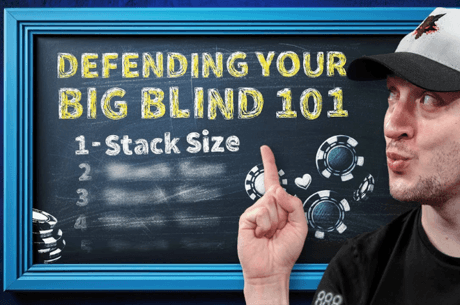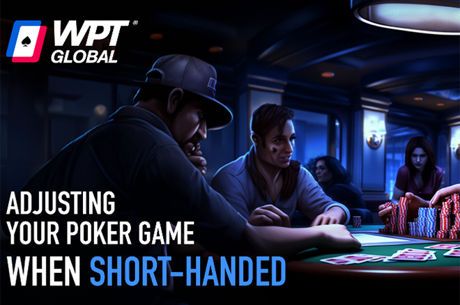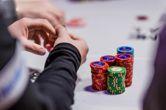Making the Last Bet: Finding Fold Equity with Ace-King
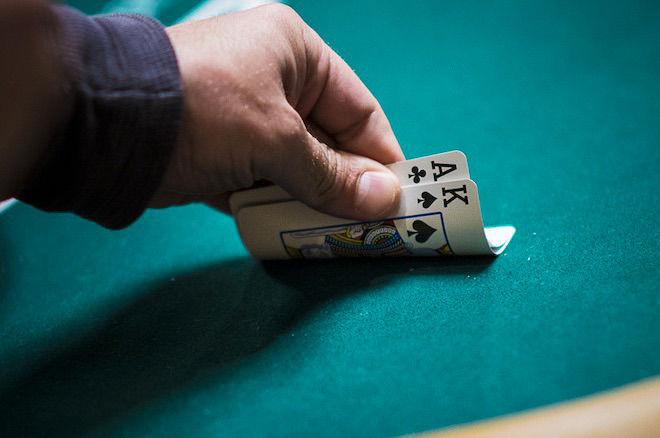
There are so many situations in no-limit hold'em where old wisdom can be translated to new thinking, and without too much editing. One such nugget is to say that you will often be in situations in which it is preferable if you can to make the last bet with ace-king.
Of course, in many blind-versus-blind or short-stacked situations, AxKx can be a happy snap-call for all the chips. But because it blocks aces and kings, in many spots the hand is also a good one with which to be making that last shove in order to try to seize what's in the middle.
We might think of this as just a specific example of a more general rule — if you don't hold the nuts preflop, you probably want to make the last bet.
Let's look at a complicated (though not that uncommon) type of preflop circumstance that helps illustrate the positives of making the last bet with ace-king.
Preflop Complications
This hand of online poker comes from a game of six-max Zoom played at 100NL ($0.50/$1). And as it happened, all six players wanted to get involved.
It began with the under-the-gun player, a regular playing $105, opening to $3. Next to act was another regular, one with an active reputation and a stack of $180 who reraised to $8.50.
In the cutoff sat a recreational player with a big stack of $310 who cold-called the three-bet. Then a regular on the button with $133 to start overcalled, and finally (!) another regular in the small blind with $380 called as well.
So far we have five players coming into the pot — under the gun for a raise, middle position for a three-bet, and three cold callers.
After all that, the big blind, a decent recreational player, moved all in for $102 total.
Risk and Reward
By the time it comes around to the big blind there is $38 in the pot, so risking $102 to win $38 isn't actually that outlandish, particularly with some equity when called. What the limits of the big blind's range should be is debatable, but certainly if the big blind woke up with AxKx here, it seems like a merited shove.
All three of the cold callers would appear to have a capped range. That is to say, they probably don't have aces or kings.
The initial raiser only has a little over 100 big blinds, but the three-bettor has 180. So for example, the times the cold-calling cutoff has QxQx or AxKx, he might be reluctant to play for it all, particularly because a cold four-bet in these positions looks unusually strong. When the cutoff holds QxQx in this spot, it is not like JxJx will happily go to war with him.
The big blind has a type of advantage here. He is pulling a big squeeze, since the first cold-caller especially has to have something in order to call, and both under the gun and the three-bettor can't feel comfortable with hands as strong as 10x10x or AxQx.
Fast Forward
The initial UTG raiser folded and the three-bettor followed suit, perhaps holding nothing, or perhaps wary of what lurked behind. The cold-caller in the cutoff, on cue, called again for $94 more, leaving a bit over 200 big blinds behind. The button was convinced his hand was no good and folded. Then the small blind moved all in.
At first blush it may seem like the small blind can never have aces or kings given how he previously had an incredible squeeze spot after the original raise, reraise, and two calls. But on the other hand, that squeeze spot was going to get even better for the big blind and under the gun if the small blind just flatted (as he did). They'd be lurking in wait with two potential re-openers of the action.
This means actually that the cutoff does not have a snap-call with basically any hand in his range. He has to call 200 big blinds off to play versus the small blind's equity heads-up, while he takes his equity three ways for a 300-ish big blind pot. If he has a pair like 10x10x, JxJx, or QxQx, he is hoping to be flipping in the side pot. If he has AxKx, he is also hoping to be flipping in the side pot.
Napkin Math
The cutoff isn't as priced in as it might appear. He has to call 200 to play a 400 BB pot with no overlay, against what has to be a pretty strong hand, and a 300 BB pot with three-way equity. If he has tens or jacks, he should probably duck out of the way. If he has 30 percent equity in the main pot, he needs 41 percent in the side pot to call it off here.
Remember, the small blind, if dealt QxQx or AxKx, could have felt the same caution was necessary, not wanting to get 180 BBs in against the initial three-bettor right away with a nonetheless strong hand like queens or ace-king. But now that the three-bettor folded, he can let chips fly as well.
So... the cutoff is in a squirmy spot. He did call, with Q♠Q♥, a decision with which it is hard to find fault. The small blind turned over A♦K♦, another well played hand, while the big blind had gone for the big squeeze with the not unreasonable 9♦9♣.
Ace-king did in fact maximize his fold equity and gave himself a chance to flip for over 300 big blinds while only investing 100. Even when called, his equity was almost 40 percent to scoop the main and he had 46 percent in the bigger side pot.
The cutoff with Q♠Q♥ probably made the correct choices, though it will be unusual to find yourself taking the right line by cold calling a three-bet, calling for 100 big blinds more, then again calling off another 200 big blinds on top of that. Because cold-calls of three-bets are prevalent in these games, such tricky navigation is sometimes required.
While the cutoff's first decision to flat the three-bet in the first place was tricky, the small blind's eventual choice to move all in for 300 BBs was pretty straightforward.
By doing so, the small blind set himself up for a clear decision. With ace-king the small blind made the last bet, had fold equity, and could be confident he was never in bad shape.
Hitting the king on the turn to scoop didn't hurt, either.

